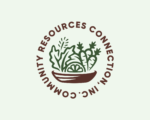NORTH MONTICELLO COMMUNITY OUTREACH, INC.

The approximate size of the garden is 72 feet long and 40 feet wide. The garden has two large beds located behind the church within a perimeter fence. Over 200 families have been fed from our community garden.
After receiving the funding assistance from United States Department of Agriculture (USDA), Natural Resources Conservation Service (NRCS) through cooperative efforts with Community Resources Connection (CRC), we were able to restart our garden after it lay dormant for over 2 years. The funding allowed us to purchase needed tools such as shovels, rakes, hoes, garden gloves, garden seeds to plant for both spring and fall, wheelbarrows, water hoses, and lumber for the garden beds. We were also able to install an irrigation system to water the plant beds consistently. The garden also allowed us to feed the families in the 29203 zip code, a designated food desert with fresh fruit and vegetables for the spring and fall of 2024.
The partners who contributed to the community garden project include:
- Clemson University Cooperative Extension Office; Contribution: seeds, mentoring, advisement, and training.
- God’s Church of Deliverance; Contribution: volunteers to work in the garden, monetary donation.
- Columbia International University; Contribution: volunteers to work in the garden.
- Columbia Metro Baptist Association; Contribution: monetary donation
- Youth Alliance Refocus Development, Inc.; Contribution: monetary donation.
- Bookert Heights Community Neighborhood Association; Contribution: volunteers.
- Forest Heights Community Neighborhood Association; Contribution: monetary donation.
- Temple Zion Baptist Church; Contribution: monetary donation and volunteers to work in the garden.
We received training from the Clemson University Cooperative Office. Jackie Jordan, Urban Horticulture Master Garden Coordinator, mentored us in the development of the garden and provided a seminar/workshop on planting and maintaining various types of gardens, including in-ground, above-ground, and hydroponics-type gardens.
Families were very appreciative and grateful for the fresh vegetables. We have a lot of elderly families in our community that are on restricted diets and some vegans. Some families tried different vegetables for the first time after we told them how to cook the vegetables.
Feedback from garden beneficiaries and partners:
Some of the partners were surprised at the development of the garden and the quality of the fresh vegetables, but they were grateful that we were able to feed so many families in the community.
Our garden project was used to bring several partnerships together within our community. As mentioned above, all listed partners agreed that the garden benefited the community. The garden also provided fresh produce to give to families who both frequented our Food Pantry and members of the church, especially seniors and single-parent homes.
A significant lesson learned from this project is ensuring we have enough volunteers with gardening and farming skills to maintain the garden daily or regularly. Gardening is challenging and laborious. Attention must be given to the garden each day. We learned that weeding cannot be neglected, and we also learned to monitor the plants as they develop. It takes partnerships to maintain a healthy and robust garden. Fresh fruit and vegetables are a must in neighborhoods that are food-insecure or food deserts. More emphasis needs to be placed on teaching families how to grow their own gardens and how to cook healthier meals from the produce.
